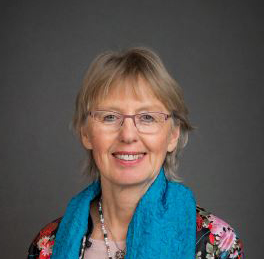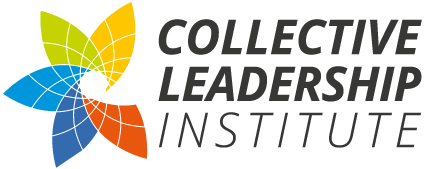The role of guiding regulations and resource allocations is to safeguards life’s wholeness and integrity at all levels. Without setting rules transformations to sustainability do not move forward. Guiding regulations are as powerful as deliberate interventions in our hands to decide the way resources are allocated, access is managed, taxes are distributed, or investments are focused. But, as important, are voluntary frameworks and peer-reviewed standards that guide the change in our collective behavior. To enable transformative change, we must learn how to combine voluntary and binding agreements.

Dr. Petra Kuenkel
Global Transformation and Leadership Expert; Member of the Executive Committee, Club of Rome, Founder, Collective Leadership Institute, Fellow World Academy of Arts and Science
Dr. Petra Kuenkel is a thought-leader, renowned author, and leading strategic advisor for multi-stakeholder approaches in global sustainable transformations. As an executive committee member of the Club of Rome and founder of the Collective Leadership Institute she empowers leaders to take decisive action for our planetary future. Her academically grounded key note speeches inspire audiences worldwide with ideas for actionable pathways to a better world. Her ground-breaking publications focus on transformation literacy, stakeholder partnerships, collective stewardship and life-serving new economic architectures.
Picture ©Christian Jaeggi

Garry Jacobs
President & Chief Executive Officer of the World Academy of Art & Science (WAAS) and Member of Club of Rome International
Garry Jacobs is the Chief Executive Officer of the World Academy of Art & Science(WAAS), USA. He is Chairman of the Board and Chief Executive Officer of the World University Consortium (WUC), USA; Vice President and Director of Social Science Research at The Mother’s Service Society, India; Distinguished Professor of Transdisciplinary Social Science at the Institute for Person-Centered Approach, Italy; Editor of Cadmus Journal focusing on the economy, security and governance; founder of Mira International, a management consultant to businesses in Europe, North America and Asia on strategic growth and profitability, Member of Club of Rome International (Switzerland); and Chairman of the advisory council of Global Institute for Integral Management Studies, India. As a social scientist, he focuses on new paradigm concepts and strategies in the fields of business, economy, education, governance, and international security. The integrating theme in Jacobs’ research is the social and psychological process of growth and development as it expresses at the level of the individual, organization, nation, and the global community.

Eveline Rodrigues-Abotsi
International lawyer, Research Fellow Max Planck Foundation Heidelberg, Vice President of Initiative For Africa
A research fellow at the Max Planck Foundation in Heidelberg, Eveline Rodrigues is an international lawyer specialized in African countries. Committed to development issues on the African continent, she is a member of the International Network of Africanist Lawyers and the Vice-President of Initiative For Africa, an NGO working in the field of entrepreneurship and leadership. She believes that business law and constitutional law play an important role in transformations. She advocates for an economic doctrine that is based on placing the economy at the service of people, redefining the principles and values on which the economy is based, ensuring the inclusion of women and disadvantaged groups, and environmental preservation.


Alina Gruen
Senior Project Manager
Alina Gruen is Senior Project Manager at the Collective Leadership Institute (CLI) with two focus areas. On one hand, she works in strategy development (e.g. university collaboration), and on the other hand, she works in the field of educational programs and project management in Eastern Europe/Central Asia.
She holds a B.A. in City and Regional Management and an M.A. in International Business and Intercultural Management with a focus on Sustainable Cooperation Development and Enhancement of Potentials through Dialogue and Collaboration. Her personal interests are related to social and ecological sustainability issues.

Ts. Roslina Muhammad
Technical Specialist – Circular Economy, Technology Solutions Division, Malaysian Green Technology and Climate Change Corporation
A Professional Technologist accredited by the Malaysian Board of Technology Malaysia since 2018 with 18 years of experience in Green Technology sectors especially in Renewable Energy, Green Financing, Green SMEs, Waste Management, GreenSkills Standards, and Circular Economy.
She is presently a Technical Specialist for Circular Economy, focusing on solid and scheduled waste areas, and has extensive experience involved in various ministries in developing public policy such as roadmaps and master plans (GreenTechnology Master Plan and Malaysia Sustainable Plastic Roadmaps).
She is also a leading the Technical Working Group for EPR Policy Support and SUP Reduction for CAP-SEA Project in Malaysia


Safeguarding the commons for human and planetary health is crucial for our future: the air we breathe, the forests that support our climate, the water we need to drink, and the communities that support us. Stewarding transformative change goes together with reviewing, reforming, abolishing, or strengthening regulatory frameworks – from environmental regulations to carbon tax, from incentives for renewable energy to penalties for environmental damage.
We have learned a lot about the positive impact of voluntary standards which, if developed together with stakeholders, have made many supply chains more responsible. But will what we have be enough to keep humankind’s action within the safe operating space? Transformation literacy fosters a deeply rooted attitude towards contribution of all to the commons and the beauty of our life-support systems.
“Ecocide is extensive loss, damage or destruction of ecosystems of a given territory, such that the peaceful enjoyment of the inhabitants has been or will be severely diminished.”
Polly Higgins, Visionary advocate for ecocide law, author of Dare to be Great
Guiding regulations and resource allocations are often perceived as top-down measures which restrict behavior. But looked at from the perspective of future generations they are testimonials of our collective responsibility for the future. They influence collective behavior change and represent powerful interventions into our way of negotiating individual and collective interest. Some regulations are solid and difficult to change: states have negotiated constitutions; business laws have developed over time. Still, all need to be continuously monitored to understand what their contribution to a sustainable future is. Further, many more regulations have yet be fully co-developed: development policies, agricultural practices, social equity measures, or nature conservation measures. Guiding regulations are much easier to implement when:
- they are anchored in our willingness to contribute to the commons and collective wellbeing;
- they balance binding agreements and voluntary contributions in the best possible way;
- they are regularly reviewed and their impact and usefulness are regularly assessed.
In this conference session, we will explore how binding regulations and voluntary agreements contribute to our ability to steward wellbeing and the commons.
